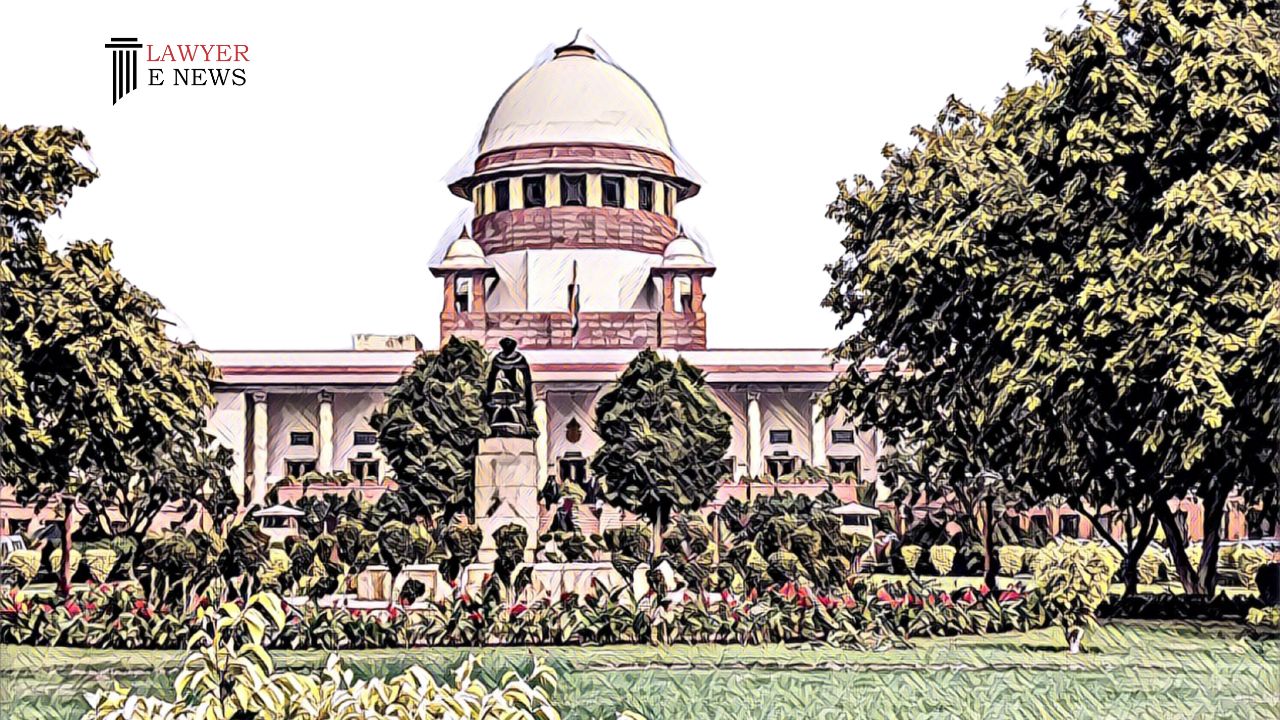-
by Admin
15 February 2026 2:36 AM



On 28 March 2023, Supreme Court in a recent Judgement(PULEN PHUKAN & ORS. Vs. STATE OF ASSAM) observed that the duty of the prosecution is not merely to accept the complainant's version as truth but to conduct a fair and transparent investigation to ascertain the truth. The evidence collected during investigation should be carefully analyzed by the Investigating Officer and a report under Section 173(2) of the CrPC should be submitted. The Trial Court must scrutinize the evidence and try to find out the truth based on evidence led and may conduct further inquiry on its own if necessary. If the investigation is unfair and tainted, the Trial Court must seek clarifications on all aspects to arrive at a just and fair conclusion. Failure to do so may render the Trial Court's judgment vitiated.
First Information Report filed, U/s 147/148/447/323/302/149 of IPC, by an eyewitness sister-in-law of the deceased, reporting an incident where thirteen villagers assaulted and injured individuals, including causing the death of one person. After an investigation, a charge sheet was submitted against eight accused, five of whom could not be arrested. Three more accused were later arrested and sent for trial. Seven witnesses were examined, and documentary evidence was produced to prove the charges. The Trial Court and High Court found the evidence to be unquestionable and recorded the conviction and sentence of the accused.
The Appellants have appealed against a judgment and order passed by the Gauhati High Court, which confirmed the conviction and sentence of 11 accused by the Trial Court for various offenses under the Indian Penal Code, including murder. Although all 11 convicted accused had appealed before the High Court, only four have appealed before this Court.
The appellants argued that the prosecution's version of events was unreliable due to various inconsistencies, such as the incomplete FIR, the presence of police personnel with the accused, and the police's failure to apprehend the accused. They also argued that there was no evidence to show that all the accused had a common object, and that the eyewitnesses' testimony was inconsistent and unreliable. Additionally, they claimed that the police had falsely implicated them, as evidenced by their presence throughout the incident and the lack of evidence from the person who wrote the FIR.
The state argued that the lower courts had already considered the evidence and recorded a conviction, which did not require any interference.
The Supreme Court observed that the presence of police personnel with the accused during the incident and their failure to apprehend the accused immediately raises doubts on the prosecution's story. The court noted that the trial court did not give serious thought to this fact and simply dismissed the defense's argument on this count. The court further observed that if the police were present during the commission of the crime, they should have acted immediately to apprehend the accused instead of allowing them to escape and continuing to assault the injured on the way to the police station. This creates serious doubt about the credibility of the prosecution's case.
Supreme court noted that the evidence of the witnesses is inconsistent and does not inspire confidence. The informant's report does not assign any specific role to any accused, but in her trial statement, she gives different details about who committed the crime. The court finds it suspicious that the informant's FIR and trial statement differ so much. The court also finds the evidence of PW-2, the brother of the deceased, to be doubtful, as there is no injury report on record despite his claim of injuries. The court notes that the evidence of PW-3, the wife of PW-2, is also inconsistent with other witnesses and that PW-4 and PW-5's evidence is not relevant to the manner of assault. Overall, the court finds the evidence presented by the prosecution to be lacking in credibility.
Supreme Court discussed the legal issues in this case involve determining whether it was a case of unlawful assembly and whether the accused were members of the unlawful assembly with a common object, and observed that U/s 149 of IPC, every member of the unlawful assembly must know the common object and the likely offence to be committed in prosecution of the common object. However, none of the eyewitnesses in this case have taken the names of all 13 accused persons or stated that all the accused had a common object to commit murder and assault the injured PW-2. Additionally, none of the eyewitnesses stated that any of the accused exhorted others to eliminate the deceased and assault the injured PW-2. Finally, it is stated that at least five police personnel were accompanying the accused and were standing outside without interfering in the alleged crime. And held that it is difficult to determine that all members of the unlawful assembly were aware of the common object.
The Supreme Court analyzed the evidence and found serious inconsistencies in the testimonies of the eyewitnesses, which created doubts about the prosecution's version of events. The court noted that the prosecution failed to establish the presence of an unlawful assembly and a common object among the accused to commit murder. The court also observed that the police personnel were present throughout the incident but did not intervene, which raised questions about their role in the matter. The court found that the prosecution had not established the place of occurrence and failed to produce key material exhibits. In light of these shortcomings, the court allowed the appeal and set aside the conviction and sentence of the accused.
PULEN PHUKAN & ORS. Vs. STATE OF ASSAM
